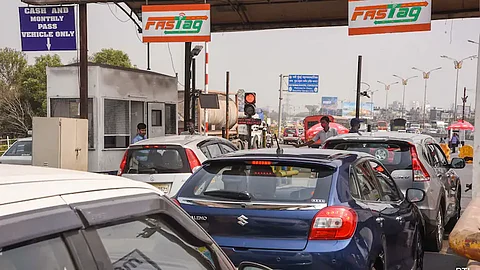

The National Highways Authority of India (NHAI) has launched a nationwide crackdown on “loose FASTags”—tags not affixed to a vehicle’s windscreen but instead presented by hand. This enforcement aims to address operational inefficiencies and growing fraud in the Electronic Toll Collection (ETC) system.
Many users intentionally avoid attaching FASTags to their windshields, using them manually at toll booths. This causes lane delays, disrupts traffic flow, and defeats the purpose of contactless tolling. More seriously, loose FASTags allow misuse—such as swapping tags across vehicles or using a car’s tag on a truck—leading to toll evasion and direct revenue losses for NHAI and concessionaires.
These tags also result in chargeback disputes and poor transaction data quality, eroding trust in the ETC system. With India preparing for advanced systems like Annual Pass and Multi-Lane Free Flow (MLFF) tolling, tag-to-vehicle linkage is now essential.
Toll agencies can report non-affixed tags to NHAI via a designated email. Once reported, NHAI will immediately blacklist the FASTag, rendering it invalid across all national highways. Real-time updates will alert toll booths to deny lane access to such vehicles.
Compliant Users: Vehicles with properly mounted FASTags will benefit from smoother and faster toll experiences, fewer disputes, and reduced congestion.
Non-Compliant Users: Those using “tag-in-hand” will face immediate tag deactivation and may be blocked from using FASTag lanes until they rectify the issue through their issuing bank.
This move is expected to streamline toll operations, reduce fraud, and improve overall road travel efficiency, aligning with India’s push toward seamless digital mobility.